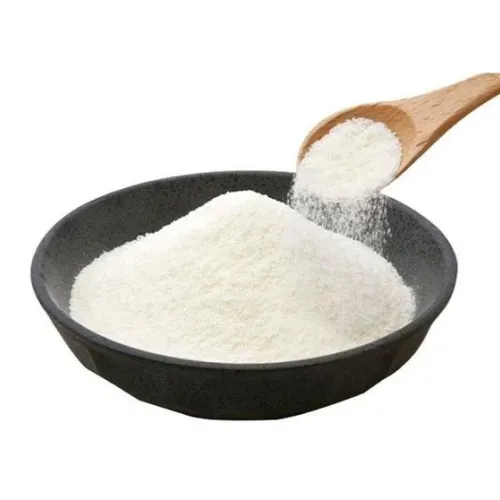Warning: Undefined array key "title" in /home/www/wwwroot/HTML/www.exportstart.com/wp-content/themes/1198/header.php on line 6
Warning: Undefined array key "file" in /home/www/wwwroot/HTML/www.exportstart.com/wp-content/themes/1198/header.php on line 7
Warning: Undefined array key "title" in /home/www/wwwroot/HTML/www.exportstart.com/wp-content/themes/1198/header.php on line 7
Warning: Undefined array key "title" in /home/www/wwwroot/HTML/www.exportstart.com/wp-content/themes/1198/header.php on line 7
- Afrikaans
- Albanian
- Amharic
- Arabic
- Armenian
- Azerbaijani
- Basque
- Belarusian
- Bengali
- Bosnian
- Bulgarian
- Catalan
- Cebuano
- China
- China (Taiwan)
- Corsican
- Croatian
- Czech
- Danish
- Dutch
- English
- Esperanto
- Estonian
- Finnish
- French
- Frisian
- Galician
- Georgian
- German
- Greek
- Gujarati
- Haitian Creole
- hausa
- hawaiian
- Hebrew
- Hindi
- Miao
- Hungarian
- Icelandic
- igbo
- Indonesian
- irish
- Italian
- Japanese
- Javanese
- Kannada
- kazakh
- Khmer
- Rwandese
- Korean
- Kurdish
- Kyrgyz
- Lao
- Latin
- Latvian
- Lithuanian
- Luxembourgish
- Macedonian
- Malgashi
- Malay
- Malayalam
- Maltese
- Maori
- Marathi
- Mongolian
- Myanmar
- Nepali
- Norwegian
- Norwegian
- Occitan
- Pashto
- Persian
- Polish
- Portuguese
- Punjabi
- Romanian
- Russian
- Samoan
- Scottish Gaelic
- Serbian
- Sesotho
- Shona
- Sindhi
- Sinhala
- Slovak
- Slovenian
- Somali
- Spanish
- Sundanese
- Swahili
- Swedish
- Tagalog
- Tajik
- Tamil
- Tatar
- Telugu
- Thai
- Turkish
- Turkmen
- Ukrainian
- Urdu
- Uighur
- Uzbek
- Vietnamese
- Welsh
- Bantu
- Yiddish
- Yoruba
- Zulu
Aug . 13, 2024 18:01 Back to list
Exploring the Benefits and Uses of Xylitol as a Natural Sugar Substitute for Healthier Living
The Benefits of Xylitol Sugar A Natural Sweetener
In recent years, there has been a growing shift towards healthier eating habits, with many individuals seeking alternatives to traditional sugar. One such option that has garnered significant attention is xylitol, a natural sugar alcohol used as a sweetener. With its unique properties and potential health benefits, xylitol sugar has become a popular choice among health-conscious consumers and those looking to reduce their sugar intake.
What is Xylitol?
Xylitol is a sugar alcohol derived from natural sources such as birch trees and corn cobs. It is often found in various products, including sugar-free gum, candies, toothpaste, and beverages. Unlike regular sugar, xylitol contains fewer calories—approximately 2.4 calories per gram, compared to sugar’s 4 calories per gram. This lower calorie content makes xylitol an appealing option for those who are trying to manage their weight or reduce their caloric intake.
Health Benefits of Xylitol
One of the most notable benefits of xylitol is its potential impact on dental health. Numerous studies have shown that xylitol can help reduce the growth of harmful bacteria in the mouth, which contributes to tooth decay and cavities. By inhibiting the growth of Streptococcus mutans, the primary bacteria responsible for dental caries, xylitol can help maintain a healthier oral environment. Dental professionals often recommend xylitol-containing products to promote oral hygiene, making it a popular ingredient in toothpaste and mouthwashes.
Another significant advantage of xylitol is its low glycemic index (GI). With a GI of just 7, xylitol has minimal impact on blood sugar levels, making it a suitable alternative for individuals with diabetes or those looking to manage their blood sugar. This characteristic allows people to enjoy sweet flavors without the spikes in blood glucose associated with regular sugar consumption.
xylitol sugar

Digestive Considerations
While xylitol has several benefits, it is important to note that it may cause digestive discomfort in some individuals. As a sugar alcohol, xylitol is not completely absorbed in the digestive tract, which can lead to gas, bloating, and diarrhea, especially when consumed in large quantities. Those who are sensitive to sugar alcohols should start with small amounts and monitor their tolerance. Additionally, it is crucial for pet owners to be aware that xylitol is extremely toxic to dogs, even in small doses, and should be kept out of reach.
Practical Uses of Xylitol
Xylitol can be used as a direct substitute for sugar in many recipes, making it an easy addition for those looking to reduce their sugar intake. It can be used in baking, cooking, and as a sweetener for beverages. However, when substituting xylitol for sugar, it is important to consider its unique properties; xylitol does not caramelize like regular sugar, which may alter the texture and flavor of certain dishes.
Conclusion
As the movement towards healthier lifestyles continues, xylitol sugar presents a promising alternative to traditional sweeteners. With its dental health benefits, low glycemic index, and versatility in cooking and baking, xylitol has established itself as a valuable component in the diet of those seeking to enjoy sweetness without compromising their health. As always, it is essential to consume xylitol in moderation and be mindful of individual tolerances. As more people become aware of its benefits, xylitol may well pave the way for a sweeter, healthier future.
Latest news
-
Certifications for Vegetarian and Xanthan Gum Vegetarian
NewsJun.17,2025
-
Sustainability Trends Reshaping the SLES N70 Market
NewsJun.17,2025
-
Propylene Glycol Use in Vaccines: Balancing Function and Perception
NewsJun.17,2025
-
Petroleum Jelly in Skincare: Balancing Benefits and Backlash
NewsJun.17,2025
-
Energy Price Volatility and Ripple Effect on Caprolactam Markets
NewsJun.17,2025
-
Spectroscopic Techniques for Adipic Acid Molecular Weight
NewsJun.17,2025

